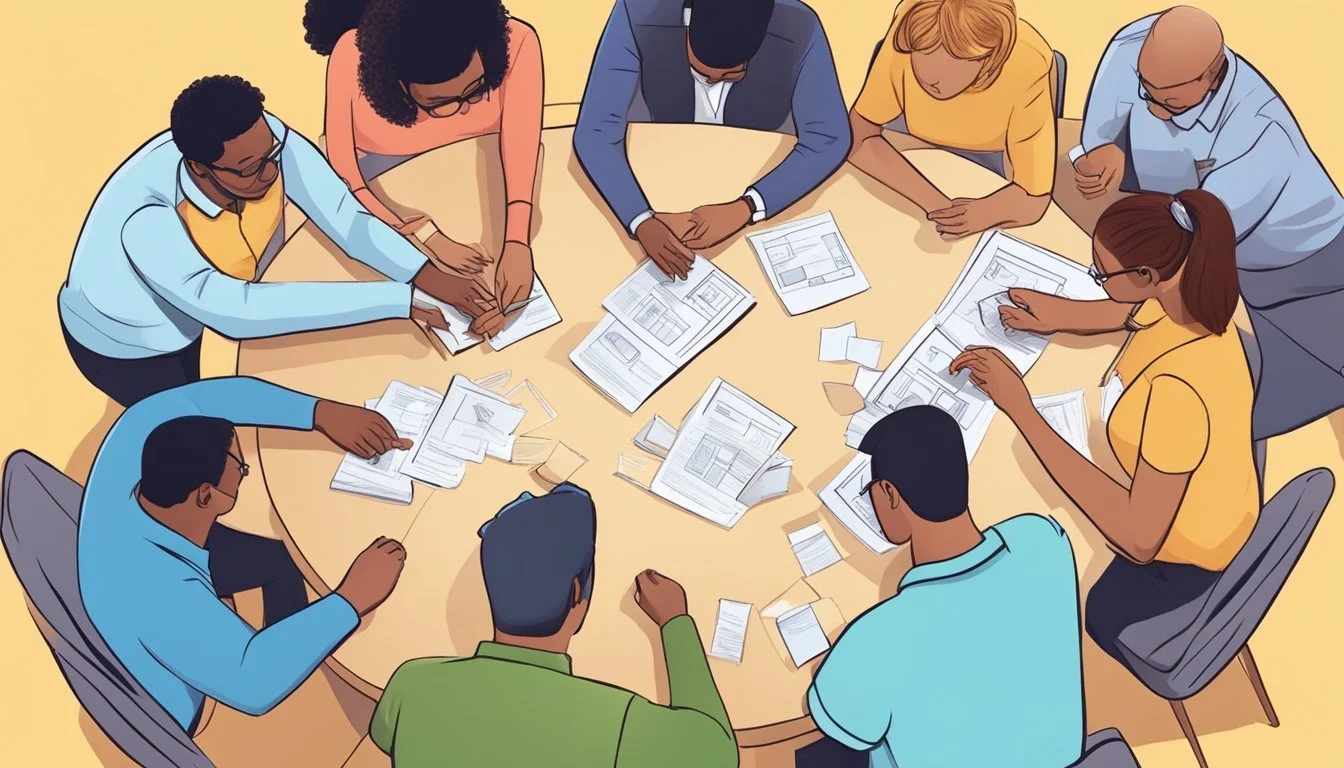Discovering the Best Personality Types: Unlocking Strengths and Potential
Personality types offer fascinating insights into human behavior and potential. The Myers-Briggs Type Indicator (MBTI) categorizes individuals into 16 distinct types, each with unique strengths and characteristics. While all personality types have value, some may be particularly well-suited for certain roles or environments.
ENTJs and ENTPs often excel in leadership and entrepreneurship due to their innovative thinking and problem-solving abilities. These personality types tend to thrive in dynamic, challenging environments where they can leverage their creativity and strategic vision. ISFJs, the most common type in the general population, bring their own strengths to the table with their caring nature and attention to detail.
Understanding personality types can be a valuable tool for personal growth and improved interpersonal relationships. By recognizing the strengths associated with different types, individuals can better appreciate diversity in the workplace and social settings. This knowledge can also help people identify career paths or roles that align with their natural tendencies and preferences.
Understanding Personality Types
Personality types offer a framework for categorizing and understanding human behavior and preferences. The Myers-Briggs Type Indicator (MBTI) is a widely recognized system that identifies 16 distinct personality types.
Based on Carl Jung's theory of psychological types, the MBTI uses four dichotomies to classify individuals: Extraversion (E) vs. Introversion (I), Sensing (S) vs. Intuition (N), Thinking (T) vs. Feeling (F), and Judging (J) vs. Perceiving (P).
Each personality type is represented by a four-letter code, such as INTJ or ESFP. These codes indicate an individual's preferences in how they interact with the world, process information, make decisions, and structure their lives.
The 16 personality types include:
ISTJ, ISFJ, INFJ, INTJ
ISTP, ISFP, INFP, INTP
ESTP, ESFP, ENFP, ENTP
ESTJ, ESFJ, ENFJ, ENTJ
Understanding one's personality type can provide insights into personal strengths, potential areas for growth, and preferred ways of communicating and problem-solving.
While personality types can be useful tools for self-reflection and team dynamics, it's important to remember that individuals are complex and may not fit perfectly into any single category.
The Four Dichotomies
The Myers-Briggs Type Indicator (MBTI) uses four key dichotomies to classify personality types. These dichotomies represent opposing preferences in how individuals interact with the world, process information, make decisions, and structure their lives.
Extraversion vs. Introversion
This dichotomy focuses on how people derive and direct their energy. Extraverts gain energy from social interactions and external stimuli. They tend to be outgoing, talkative, and comfortable in group settings.
Introverts, in contrast, recharge through solitude and inner reflection. They often prefer quieter environments and one-on-one interactions. Introverts may feel drained after prolonged social engagements.
Both types can be social and enjoy company, but their energy sources differ. Extraverts might seek out social situations to feel energized, while introverts may need alone time to recover after socializing.
Sensing vs. Intuition
This dichotomy relates to how individuals gather and process information. Sensors focus on concrete facts and details. They trust information from their five senses and prefer practical, real-world applications.
Intuitives, on the other hand, rely more on patterns, possibilities, and abstract concepts. They often look for the bigger picture and enjoy theoretical discussions. Intuitives may be more comfortable with ambiguity and future-oriented thinking.
Sensors tend to be more pragmatic and detail-oriented, while intuitives may be more imaginative and conceptual in their approach to problem-solving.
Thinking vs. Feeling
This dichotomy addresses how people make decisions. Thinkers prioritize logic, consistency, and objective criteria when making choices. They tend to analyze situations impersonally and value fairness based on clear principles.
Feelers, in contrast, consider the emotional impact of decisions on themselves and others. They emphasize harmony and personal values in their decision-making process. Feelers often excel at understanding and navigating interpersonal dynamics.
Both approaches have their strengths. Thinkers may excel in situations requiring impartial analysis, while feelers may be particularly adept at managing people and resolving conflicts.
Judging vs. Perceiving
This dichotomy reflects how individuals approach structure and flexibility in their lives. Judgers prefer organization, planning, and closure. They like to have things settled and may feel stressed by last-minute changes or unresolved issues.
Perceivers, conversely, value spontaneity and adaptability. They tend to keep their options open and may resist rigid schedules or premature decisions. Perceivers often thrive in dynamic, changing environments.
Judgers typically maintain structured routines and set clear goals. Perceivers may adopt a more flexible approach, adjusting their plans as new information or opportunities arise.
The 16 Personality Types
The Myers-Briggs Type Indicator (MBTI) categorizes individuals into 16 distinct personality types. These types are based on four cognitive functions: Extraversion (E) or Introversion (I), Sensing (S) or Intuition (N), Thinking (T) or Feeling (F), and Judging (J) or Perceiving (P).
Each type is represented by a four-letter code. For example, ENFP stands for Extraverted, Intuitive, Feeling, and Perceiving.
The 16 personality types are:
ISTJ - The Inspector
ISFJ - The Protector
INFJ - The Counselor
INTJ - The Mastermind
ISTP - The Craftsman
ISFP - The Composer
INFP - The Healer
INTP - The Architect
ESTP - The Dynamo
ESFP - The Performer
ENFP - The Champion
ENTP - The Visionary
ESTJ - The Supervisor
ESFJ - The Provider
ENFJ - The Teacher
ENTJ - The Commander
Each type has unique strengths and potential areas for growth. For instance, INTJs are known for their strategic thinking, while ESFPs are often praised for their enthusiasm and spontaneity.
Understanding these types can help individuals gain insight into their own behaviors and preferences, as well as those of others. This knowledge can be valuable in personal relationships, career choices, and self-development.
It's important to note that while personality types provide a framework for understanding differences, they should not be used to limit or stereotype individuals. People are complex and multifaceted, and their behaviors may not always align perfectly with their assigned type.
Analysts Group
The Analysts group comprises four personality types: INTJ, INTP, ENTJ, and ENTP. These types share the Intuitive (N) and Thinking (T) traits, which shape their approach to the world.
Analysts are known for their sharp intelligence and exceptional problem-solving skills. They excel at identifying patterns and developing innovative solutions to complex challenges.
Key characteristics of Analysts include:
Strong analytical abilities
Strategic thinking
Rational decision-making
Intellectual curiosity
Each type within the Analysts group brings unique strengths:
Type Notable Traits INTJ Strategic planning, independent thinking INTP Logical analysis, conceptual problem-solving ENTJ Leadership, efficiency-driven ENTP Innovation, adaptability
Analysts often gravitate towards careers that leverage their intellectual strengths. Fields such as science, technology, engineering, and mathematics appeal to their analytical nature.
In leadership roles, Analysts tend to focus on long-term strategies and systemic improvements. Their objective approach helps them make decisions based on logic rather than emotion.
While highly capable, Analysts may face challenges in areas requiring emotional intelligence or interpersonal skills. They might need to consciously develop these aspects to complement their natural analytical abilities.
Diplomats Group
The Diplomats group consists of four personality types: INFJ, INFP, ENFJ, and ENFP. These individuals share a deep commitment to personal growth, authenticity, and serving the greater good.
Diplomats are known for their strong empathy and exceptional communication skills. They excel at understanding others' perspectives and fostering harmony in interpersonal relationships.
Key traits of Diplomat personalities include:
Idealistic outlook
Strong moral compass
Creative problem-solving abilities
Natural inclination for activism and volunteering
Diplomats often pursue careers in fields such as counseling, teaching, writing, and non-profit work. Their focus tends to be on making a positive impact rather than financial gain or professional status.
In social settings, Diplomats thrive on deep, meaningful conversations. They possess a unique ability to connect with others on an emotional level, often inspiring those around them with their visionary ideas.
While each Diplomat type has its own strengths, they all share a common desire to create positive change in the world. Their idealism and empathy make them valuable team members and natural peacemakers in both personal and professional contexts.
Diplomats face challenges too. Their sensitivity can sometimes lead to emotional overwhelm, and they may struggle with practical matters. However, their creativity and people skills often help them overcome these obstacles.
Sentinels Group
The Sentinels group comprises four personality types: ISTJ, ISFJ, ESTJ, and ESFJ. These individuals share a strong sense of responsibility and value structure in their lives.
Sentinels are known for their practicality and reliability. They often excel in roles that require attention to detail and adherence to established procedures.
ISTJs and ESTJs tend to be more logic-oriented, while ISFJs and ESFJs are typically more focused on interpersonal relationships. All Sentinel types, however, prioritize stability and tradition.
Key traits of Sentinels include:
Dependability
Respect for authority
Desire for order
Strong work ethic
Sentinels often thrive in careers that involve administration, management, or public service. Their commitment to duty and structure makes them valuable team members in many organizations.
Personal growth for Sentinels may involve developing flexibility and openness to new ideas. While their preference for established methods is a strength, learning to adapt can enhance their effectiveness.
Sentinels typically value respect highly, both giving and receiving it. They appreciate recognition for their contributions and tend to show respect for societal norms and hierarchies.
In relationships, Sentinels are often loyal and supportive partners. They value long-term commitments and tend to be reliable in their personal connections.
Explorers Group
The Explorers group consists of four personality types: ISTP, ISFP, ESTP, and ESFP. These individuals share a unique combination of sensing and perceiving traits that shape their approach to life.
Explorers are known for their flexibility and spontaneity. They adapt quickly to new situations and thrive on variety in their daily experiences.
Creativity is a hallmark of the Explorer group. Many find fulfillment in artistic pursuits, using their hands-on approach to express themselves through various mediums.
ISTP and ESTP types often excel in practical problem-solving. They enjoy working with tangible objects and finding innovative solutions to mechanical or physical challenges.
ISFP and ESFP personalities tend to be more people-oriented. They have a natural talent for entertaining others and creating enjoyable experiences for those around them.
Explorers make up about 20-25% of the population. Their adventurous spirit and ability to live in the moment bring excitement and spontaneity to their relationships and work environments.
These types value freedom and dislike excessive rules or structure. They prefer to keep their options open and may struggle with long-term planning or strict routines.
Explorers excel in careers that allow for hands-on work, creativity, and variety. Some suitable fields include:
Arts and entertainment
Emergency services
Sports and fitness
Culinary arts
Travel and tourism
Their adaptability and quick thinking make Explorers valuable team members in fast-paced or unpredictable work environments.
Personality Types in Personal Growth
Personality types play a crucial role in personal growth journeys. Understanding one's personality type can provide valuable insights into strengths, challenges, and potential areas for development.
The Myers-Briggs Type Indicator (MBTI) is a popular tool for exploring personality types. It categorizes individuals into 16 distinct profiles based on four dimensions: Extraversion/Introversion, Sensing/Intuition, Thinking/Feeling, and Judging/Perceiving.
Each personality type has unique characteristics that influence personal growth:
Introverts may focus on inner reflection for growth
Extraverts often seek external experiences and interactions
Sensing types tend to learn through practical, hands-on methods
Intuitive types may prefer abstract concepts and theories
Personality type awareness can help individuals tailor their personal development strategies. For example, an ENFP might thrive in creative, collaborative environments, while an ISTJ may prefer structured, solitary learning experiences.
Charisma, often associated with personal growth, can manifest differently across personality types. Some may naturally exude charisma through warmth and enthusiasm, while others may develop it through confidence and expertise in their field.
Recognizing one's personality type is not about limiting potential, but rather understanding innate tendencies. This knowledge can guide individuals in choosing growth opportunities that align with their natural inclinations and strengths.
Personal growth is a lifelong journey, and personality type awareness serves as a valuable tool for self-understanding and targeted development.
Social and Professional Relationships
Personality types significantly influence social and professional relationships in the workplace. Extroverts often excel in networking and building connections, leveraging their sociability to foster collaboration.
Introverts bring valuable depth to interactions, offering thoughtful analysis and one-on-one communication skills. Their ability to listen attentively enhances team dynamics.
Individuals with high emotional intelligence navigate workplace relationships adeptly. They demonstrate empathy, read social cues accurately, and manage conflicts effectively.
Those with strong leadership qualities inspire and motivate others. They communicate vision clearly and rally teams towards common goals.
Compassionate personalities create supportive work environments. Their genuine concern for colleagues' well-being promotes harmony and reduces workplace stress.
Effective communicators bridge gaps between different personality types. They adapt their style to suit various audiences, ensuring messages are understood across diverse teams.
Personalities that prioritize interpersonal relationships contribute to a positive organizational culture. They cultivate trust, encourage open dialogue, and foster a sense of belonging among team members.
Personality Types and Career Paths
Different personality types tend to excel in various career paths. The Myers-Briggs Type Indicator (MBTI) identifies 16 distinct personality types, each with unique strengths and preferences.
Analytical personalities like ISTJs often thrive in careers that require attention to detail and problem-solving skills. These individuals may find success as accountants, engineers, or quality assurance specialists.
For those with strong leadership qualities, such as ENTJs, executive roles or entrepreneurship can be fulfilling paths. Their natural ability to organize and direct teams makes them well-suited for management positions.
Creative personalities like INFPs may gravitate towards artistic pursuits or careers that allow for self-expression. Writing, graphic design, and music are fields where their imagination can flourish.
Individuals who value helping others, such as ESFJs, often find satisfaction in healthcare, education, or social work. Their empathy and communication skills make them effective in roles that involve direct interaction with people.
ENFPs, known for their enthusiasm and creativity, may excel in marketing, public relations, or event planning. These careers allow them to leverage their innovative ideas and interpersonal skills.
It's important to note that while personality types can guide career choices, they are not definitive. Personal interests, skills, and experiences also play crucial roles in determining suitable career paths.
Personality and Compatibility
Personality plays a crucial role in interpersonal relationships. Different personality types interact in unique ways, influencing compatibility between individuals.
Many believe that similar personality types naturally gel well together. However, research suggests that complementary traits can also lead to strong connections.
Emotional intelligence is a key factor in successful relationships. People with high EQ tend to navigate conflicts more effectively and show greater empathy towards their partners.
Respect forms the foundation of any healthy relationship. Regardless of personality type, mutual respect allows individuals to appreciate their differences and find common ground.
Some personality types are more adaptable than others. These flexible individuals often find it easier to maintain harmony in various social situations.
The 16 personalities compatibility chart offers insights into potential matches. It considers factors like communication styles, values, and needs to predict relationship dynamics.
Key compatibility factors:
Communication style
Shared values
Emotional needs
Conflict resolution approaches
Life goals
While compatibility charts can provide guidance, they shouldn't be treated as absolute truth. Every individual is unique, and successful relationships require effort and understanding from both parties.
Assessment and Development
Personality assessments serve as valuable tools for individual growth and professional development. The Myers-Briggs Type Indicator (MBTI) stands out as one of the most widely used tests in this field.
These assessments provide insights into personal strengths, weaknesses, and potential areas for improvement. By understanding their personality type, individuals can better navigate challenges and capitalize on their natural abilities.
Many organizations use personality tests to enhance team dynamics and improve problem-solving strategies. The MBTI, for example, can help identify how different team members approach tasks and communicate.
Personal growth is often a key focus of these assessments. They encourage self-reflection and can spark new ideas for personal and professional development.
Responsibility and accountability are often highlighted in personality assessments. Understanding one's tendencies can lead to more effective delegation and task management.
Imagination and creativity are also explored in many personality tests. These traits can be crucial for innovation and finding unique solutions to complex problems.
It's important to note that personality assessments should be used as guides rather than definitive labels. They offer a starting point for self-discovery and development, not a fixed destiny.






